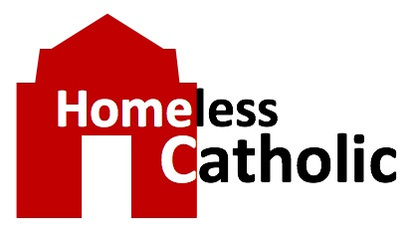Power from above
The debate among these leaders of the Jews over Jesus’ question demonstrated their concern with their status or ‘saving face’ rather than a real interest in Jesus’ legitimacy.
While they had no answer and received no answer, it is worthwhile to explore what the Gospels say about authority. It is also useful to remember Jesus’ response to Pilate when Pilate reminded Jesus the he held the power of life and death.“Jesus answered him, "You would have no power over me unless it had been given you from above." (John 19:11)
Reflection - Authority
http://www.usccb.org/bible/readings/121619.cfm
Numbers, 24:2-7, 15-17
Matthew 21:23-27
Authority plays an important part in this incident we hear from Matthew’s Gospel. That much is obvious. The encounter between Jesus and the chief priests along with the elders was considered significant enough that both Mark and Luke also included it in their gospel accounts.
Jesus could have posed a question for these leaders from a large selection of possible alternatives. Among other possibilities he could have simply put the same question back to them. But, when you think about it, that would probably have ended in an argument. Jesus actual question, on the other hand, went to the heart of the matter because it was worded in such a way as to require an openness — not necessarily acceptance, but openness — to whatever answer Jesus might give. It also required a basic honesty. The resulting debate among these men over Jesus’ actual question demonstrated their concern with their status or ‘saving face’ rather than a real interest in Jesus’ legitimacy.
While they had no answer and received no answer, it is worthwhile to explore what the Gospels say about authority.
Even a cursory reading of the Gospel texts reveals that the ordinary people were among those who recognized that something remarkable was happening and that something beyond the natural was at work. This happened even with the fundamental teaching of Jesus for, when he taught, he did not quote the ‘experts’ to substantiate his position. We hear this explicitly at the end of the Sermon on the Mount. Throughout we read that Jesus was frequently using the phrase “But I say to you.”
“And when Jesus finished these sayings, the crowds were astonished at his teaching, for he taught them as one who had authority, and not as their scribes.” (Matthew 7:28-29)
We hear about the attribution of authority again at the time of a healing.
“And he [the man who had been paralyzed.] rose and went home.
When the crowds saw it, they were afraid, and they glorified God, who had given such authority to men.” (Matthew 9:7-8)
And we also hear about it when Jesus exercises his authority over evil spirits.
“And they were all amazed and said to one another, ‘What is this word? For with authority and power he commands the unclean spirits, and they come out.’” (Luke 4:36)
As the Gospel story unfolds there seems to be no limit on the authority Jesus has.
“For as the Father has life in himself, so he has granted the Son also to have life in himself, and has given him authority to execute judgment, because he is the Son of man.” (John 5:26-27)z
But most amazingly the breadth of that authority is revealed to the people when Jesus forgives sin.
“But that you may know that the Son of man has authority on earth to forgive sins"-he then said to the paralytic-"Rise, take up your bed and go home." (Matthew 9:6)
And equally amazing we are told that Jesus has authority to give similar authority.
“And he called to him his twelve disciples and gave them authority over unclean spirits, to cast them out, and to heal every disease and every infirmity.” (Matthew 10:1)
Eventually, Jesus claim on authority will be acknowledged and verbalized by Jesus Himself right before his Ascension.
“And Jesus came and said to them, ‘All authority in heaven and on earth has been given to me.”’ (Matthew 28:18)
But Jesus also readily acknowledges that the source of his authority does not reside in himself.
"I can do nothing on my own authority; as I hear, I judge; and my judgment is just, because I seek not my own will but the will of him who sent me.” (John 5:30)
Where does all this lead? Strangely enough it leads back to the question which prompted this reflection. It’s the same question that the Jewish elders asked Jesus: “By what authority are you doing these things? And who gave you this authority?" It is a question directed at me and wonders at the authority behind these reflections. In my case, the question obviously has a much narrower focus than what we found regarding Jesus in the Gospels. Further, it is not a question posed by others but one which the gospel passage provoked me to ask of myself. The answer . . . .
I don’t believe I need any any authority to proclaim Jesus Christ as Lord and Savior except the authority of my conviction and my faith.
The lessons I find in the Scripture readings are the lessons I find in the Scripture readings. Alternatively, they are not necessarily the same ones you might find. I share them in the hope that others might find them useful, or at least provocative.
On most other matters, listening for the guidance of the Spirit is critical. It is only insofar as we listen that we can claim any authority at all.

